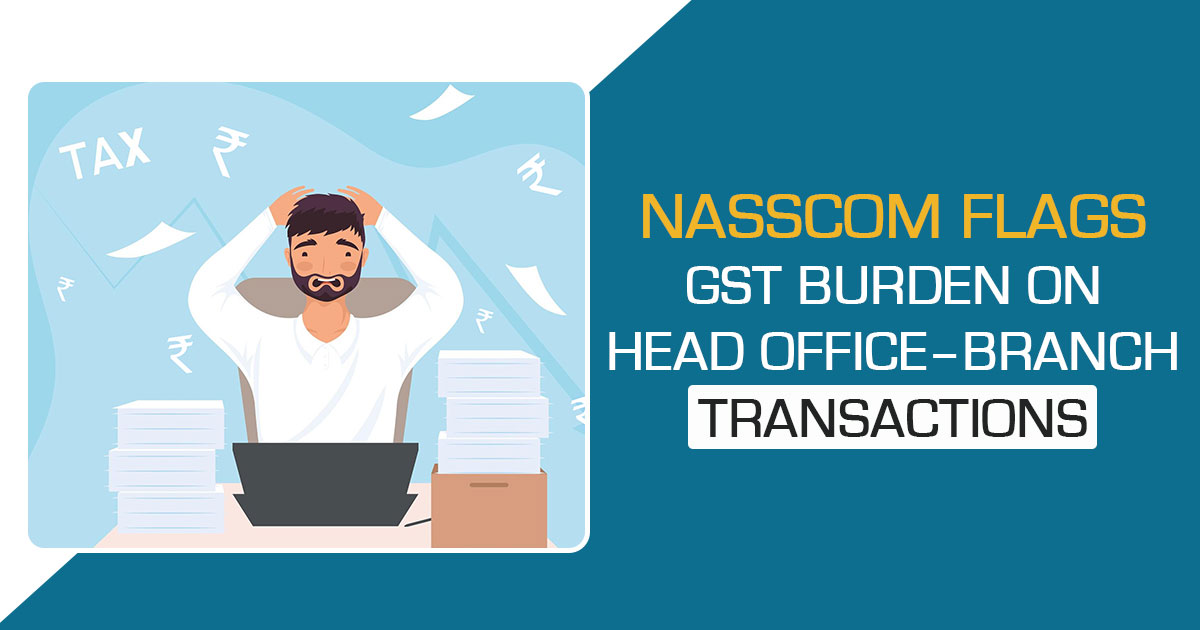
Nasscom, an industry organisation, has pointed out that the current Goods and Services Tax (GST) system treats transactions between the main offices and their branches in IT companies as if they are taxable events. This creates an unnecessary tax burden for these companies.
Even after being internal allocations in the same company and not supplies between the distinct entities, such tax loads are surging operational issues for IT companies.
Presently, a master agreement has been signed by an Indian IT company with a foreign client, post which, offshore work is accomplished from India. In that time, onsite work is delivered either via an overseas branch of the same company or via a foreign subsidiary.
Nasscom, the tax outcome varies under the GST rules. “When delivery is through a subsidiary, exports are zero-rated and input tax credit flows through to a refund. When delivery is through an overseas branch, the internal head office to branch step is treated as an exempt supply and the branch to head office support is deemed an import on which the Indian head office books reverse charge,” the statement expressed.
Moving Forward
Nasscom, in a submitted paper before the Finance ministry, has suggested revising the definition of the export of services by removing the clause that does not include the internal establishments, while keeping all the other export pre-requisites.
Read Also: Paying Foreign Currency Using International Credit Card Attracts 20% TCS
The other legislative pathway recommended is to develop a limited carve-out in Schedule I so that cross-border intra-entity flows associated with export delivery are not considered as supplies. But Nasscom has recommended guardrails for both approaches.
Contracts should be with foreign customers. Under the Foreign Exchange Management Act, 1999, foreign exchange realization should be proved. For services actually consumed in India reverse charge should continue. Without adding measures for routine exporters, targeted scrutiny can concentrate on exceptions.
Till the adoption of the legislative measures, Nasscom has asked for interim administrative steps to rectify the situation. A consolidated circular can carry direction at one location and validate that Nil valuation and refund eligibility are applicable where export contracts and foreign-exchange realisations are documented.









